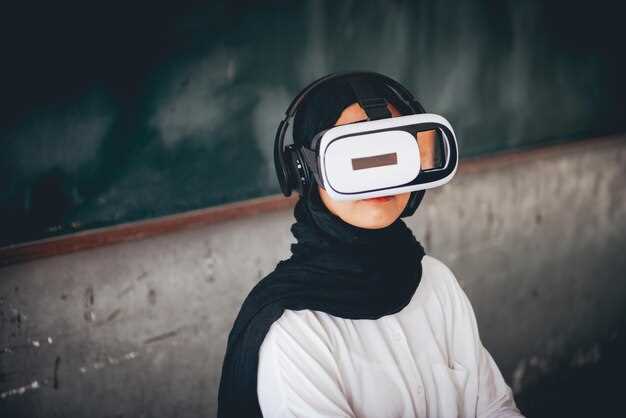Positioning itself at the forefront of the rapidly expanding esports industry, Saudi Arabia has laid out a strategic plan, Vision 2030, aimed at transforming the nation into a global hub for gaming innovation and competition. To understand the implications and opportunities of this bold venture, take a closer look at the specific goals and initiatives outlined in this transformative blueprint.
Vision 2030 places a significant emphasis on diversifying the Saudi economy, with esports recognized as a key area for growth. Saudi Arabia aims to create over 39,000 jobs in the gaming sector, contributing SAR 50 billion to the GDP by 2030. These figures represent not just ambitions, but actionable plans backed by substantial investments in infrastructure and talent development.
Furthermore, Saudi Arabia is investing heavily in fostering international esports tournaments, with the goal of bringing world-class gaming events to its cities. This attracts global visitors and enthusiasts, stimulating growth in tourism and hospitality sectors. The Saudi Esports Federation, established in 2018, spearheads these efforts, organizing events like the Gamers Without Borders and the recent Gamers8, while collaborating with international industry leaders.
The commitment to esports encompasses educational initiatives aimed at nurturing domestic talent, ensuring future generations are equipped with the skills needed for careers in gaming and technology. Universities and institutions are integrating esports curricula, providing students with unique opportunities to combine passion and profession within the burgeoning esports ecosystem.
Saudi Arabia’s Vision 2030 offers a comprehensive approach to harness the global esports boom, blending economic diversification with cultural enrichment. As the nation focuses on establishing a digital economy, Vision 2030 underscores the synergistic potential of merging technology and entertainment, setting the stage for a dynamic future in global esports. This not only shapes the country’s economic landscape but positions it as a pivotal player in the international gaming community.
Integration of Esports in Saudi Vision 2030

Saudi Arabia prioritizes establishing state-of-the-art esports facilities to attract international tournaments and promote local talent. The development of dedicated arenas in Riyadh and Jeddah is crucial, providing spaces for both competitive events and community engagement. By 2025, these hubs aim to host 20% of major esports events globally, drawing tourists and boosting local economies.
Investing in education and training programs for aspiring gamers and industry professionals forms another cornerstone. Saudi institutions now offer scholarships for esports management and game design courses, preparing students for careers in this burgeoning sector. By 2024, the goal is to produce 500 graduates annually, ready to lead regional and international initiatives.
Fostering partnerships between government bodies and global gaming companies accelerates infrastructure growth. Collaborative projects with firms like Riot Games and Activision Blizzard help bring expertise and international standards to the local scene. This not only improves the quality of events but also attracts high-profile investment opportunities.
Streamlining regulatory frameworks ensures a supportive environment for esports organizations. By simplifying processes for event licensing and sponsorship approvals, Saudi Arabia reduces barriers for entry, encouraging more teams and companies to establish a presence. This proactive approach helps the nation become a top esports destination by 2030.
Finally, promoting grassroots initiatives ensures long-term growth. Community leagues and amateur tournaments nurture early-stage talent and promote inclusivity. By increasing female participation and ensuring accessibility for all skill levels, Saudi Arabia envisions a diverse and thriving esports ecosystem that aligns with its broader Vision 2030 goals.
Strategic Goals for Esports Development
Focus on building robust infrastructure by investing in reliable digital networks and state-of-the-art venues designed for esports events. This creates an inviting environment for global tournaments and attracts international teams and audiences.
Prioritize partnerships with educational institutions to integrate esports into academic curriculums and extracurricular activities. This approach grows local talent from a young age, ensuring a steady pipeline of skilled players and professionals in the esports industry.
Enhance regulatory frameworks to promote fair play and ethical practices across all levels of competition. Establish clear rules and provide support for dispute resolution to maintain integrity and credibility within the esports domain.
Support the development of localized content and community-driven events that resonate with local audiences. Engaging with local traditions and language can deepen fan loyalty and expand the audience base.
Foster relationships with global esports organizations to host prestigious events and collaborate on popular game titles. This helps align national efforts with international trends, positioning the region as a pivotal player in the global esports scene.
Implement sustainable practices in venue management and event organization to reduce environmental impact. Leveraging technology and innovation can lead to more eco-friendly solutions, attracting partnerships with environmentally conscious brands and organizations.
Government Initiatives and Investments
Invest decisively in the esports sector by establishing dedicated funds that support both budding talents and infrastructure development. The Saudi Arabian government, through strategic investments, seeks to position itself as a global esports leader by allocating over $1 billion to this burgeoning industry. This financial commitment prioritizes the construction of state-of-the-art gaming arenas and esports academies across major cities, aiming to nurture local talent and attract international events.
By leveraging partnerships with leading tech companies and gaming publishers, Saudi Arabia facilitates technology transfer and knowledge sharing. The government also incentivizes foreign investment in the esports sector through tax breaks and streamlined licensing processes, ensuring a business-friendly environment. Such initiatives contribute to a robust ecosystem that supports job creation and economic diversification.
The National Gaming and Esports Strategy outlines a comprehensive approach to developing the industry’s regulatory framework, emphasizing fair play and digital security. These regulations align with global standards, ensuring sustainable growth and international credibility. Through these strategic efforts, Saudi Arabia not only accelerates its Vision 2030 goals but also creates a vibrant esports community that echoes on the global stage.
Role of Esports in Diversifying the Economy
Saudi Arabia should strategically invest in esports infrastructure and talent development to significantly boost its economy. The esports industry presents a lucrative opportunity, with global revenues projected to surpass $1.8 billion by 2022, according to Newzoo. By creating state-of-the-art arenas and gaming hubs, the nation can attract international tournaments, drawing tourism and creating jobs.
Incorporating esports into academic programs can sharpen the country’s competitive edge. Establish partnerships between educational institutions and major gaming companies to offer courses in game design, computer graphics, and business analytics. This will not only enhance local expertise but also establish Saudi Arabia as a global leader in esports education, similar to South Korea.
Fostering local talents through national leagues or scholarship programs can bridge the skill gap, facilitating a new stream of professional gamers contributing to the economy. Supporting women in esports can further transform the industry’s dynamics, aligning with Vision 2030’s goals of increasing female workforce participation.
The government can offer tax incentives and streamlined regulations to encourage domestic and foreign investments in esports. These incentives can play a pivotal role in establishing a sustainable esports ecosystem. Collaborating with global e-sports organizations can present co-hosting opportunities for world-renowned tournaments, enhancing the country’s international reputation and cultural exchange.
Moreover, leveraging cutting-edge technology in esports, such as VR and AR, can drive innovation across sectors. This tech integration can spur advancements in other industries like healthcare and education, broadening the economic impact of esports. Through these initiatives, Saudi Arabia not only diversifies its economy but also strengthens its cultural and technological prowess on the global stage.
Partnerships with International Esports Organizations
Establishing partnerships with international esports organizations can dramatically accelerate the growth of Saudi Arabia’s esports industry. Prioritize alliances with globally recognized bodies like ESL, Riot Games, and Blizzard Entertainment. These collaborations provide not only technical expertise but also access to an extensive network of events and tournaments.
Engage in co-hosting major esports tournaments to attract global attention and bring higher investment opportunities. Establish joint ventures that focus on the development of local talent through training programs, providing young Saudi players with exposure to international standards.
Utilize these partnerships to introduce innovative streaming practices and technologies. This can significantly enhance audience engagement by utilizing interactive features and real-time analytics. Leverage collaborations to create localized content, tapping into the unique cultural elements of Saudi Arabia, thereby expanding viewership and fan base.
Consider long-term strategic partnerships that focus on technology exchange, particularly in areas like live broadcasting and AR/VR innovations. These collaborations can position Saudi Arabia as a hub for tech-savvy esports events, attracting tech giants and ensuring sustainable industry growth.
Innovative Infrastructure Projects to Support Esports
Focus on constructing state-of-the-art esports arenas tailored for large-scale tournaments. These venues should be equipped with cutting-edge technology, such as high-speed internet connectivity and advanced broadcasting facilities to meet global streaming demands. Consider incorporating modular designs to allow flexible space configurations, accommodating both intimate gaming sessions and grand championship finals.
To facilitate player training and development, integrate specialized esports training centers within educational institutions. This initiative not only nurtures young talent but also bridges the gap between academic pursuits and professional gaming careers. Establish partnerships with gaming companies to ensure access to the latest games and consoles, keeping training environments up-to-date and relevant.
Encourage the establishment of a centralized esports hub by providing tax incentives and grants to startups focusing on game development, esports analytics, and streaming technology. This hub would serve as a melting pot for innovation, fostering collaborations across sectors and boosting economic growth.
An often overlooked component is the infrastructure for esports wellness. Invest in creating facilities that cater to both physical and mental health needs of players. This can include modern ergonomic gaming stations and wellness programs, ensuring a balanced lifestyle for participants.
| Project Type | Features | Benefits |
|---|---|---|
| Esports Arenas | High-speed internet, modular design | Enhanced spectator and player experience |
| Training Centers | Educational integration, latest technology | Skill development, career opportunities |
| Innovation Hub | Tax incentives, start-up grants | Economic growth, industry collaboration |
| Wellness Facilities | Ergonomic stations, wellness programs | Player health and longevity |
Utilizing these infrastructure innovations will strategically position a region as a leader in the esports industry, attracting international events and talents. By aligning development with the needs of the esports community, long-term sustainable growth is not just achievable but inevitable.
The Rise of Saudi Esports in the Global Market

Saudi Arabia focuses on creating large-scale esports events and investing in infrastructure. The country allocates significant resources towards developing state-of-the-art facilities aimed at hosting international tournaments and attracting global gamers.
- Investment in Infrastructure: The Saudi government has dedicated over $1.8 billion to esports, constructing arenas and gaming hubs designed to support large crowds and offer top-quality experiences.
- Hosting International Events: Saudi Arabia regularly organizes high-profile tournaments, such as the Gamers Without Borders and Riyadh Masters, drawing top-tier teams and increasing its influence on the esports calendar.
- Local Talent Development: By establishing numerous gaming academies, the country actively nurtures homegrown talent, offering workshops and training sessions to enhance skills, which solidifies its position in the competitive scene.
Streamlining these efforts, Saudi esports organizations establish partnerships with renowned global gaming companies. This collaboration not only elevates local events but also facilitates knowledge exchange, enhancing the quality of esports offerings.
- Strategic Partnerships: Collaborations with giants like Riot Games and ESL help introduce elite tournaments, while paving the way for knowledge transfer and technological advancements in the region.
- Localized Content Creation: Investment in local content creators and streamers aids in increasing regional engagement and showcasing Saudi Arabia’s unique gaming culture to the global audience.
Finally, the emphasis on innovative technologies further strengthens Saudi Arabia’s esports market position. By integrating cutting-edge solutions, the nation enhances user experience and drives growth.
- Advanced Technologies: The use of virtual and augmented reality technologies in events offers immersive experiences, setting a high standard for global esports events.
- Data-Driven Analytics: Implementing analytics tools enhances game strategies and audience engagement, attracting sponsors and boosting viewership.
Through these focused efforts, Saudi Arabia emerges as a powerful contender in the global esports market, setting trends and establishing a robust competitive scene that appeals to diverse audiences worldwide.
Major Saudi Esports Tournaments and Events
Explore standout esports events shaping the Saudi gaming landscape. These tournaments not only showcase top talents but also underline Saudi Arabia’s commitment to becoming a leading esports hub.
- Gamers8: Each summer, Riyadh hosts Gamers8, a gathering place for global gamers with massive prize pools. The event features games like “Dota 2”, “Fortnite”, and “CS: GO”, bringing together elite players for intense competition and setting records for participation and viewership.
- FUT Champions Cup: For FIFA enthusiasts, this Saudi-hosted cup is a must-watch. The event attracts the world’s best FIFA players, offering thrilling matches and the chance for locals to challenge international stars, enhancing the competitive spirit.
- Nationals by ESL: In partnership with Saudi homeland esports organizations, ESL runs regional tournaments across games such as “Valorant” and “League of Legends”. This provides a stage for local talents to shine and gain international exposure.
- Women In Games Riyadh: Dedicated to empowering female gamers, this landmark event includes tournaments, networking, and mentorship sessions. It highlights the growing presence of women in esports and promotes diversity within the gaming community.
- Saudi eLeagues: Regularly occurring throughout the year, these professional leagues span multiple games. They offer structured competition and significant advancement opportunities for players seeking to elevate their careers.
Saudi Arabia continues to make strides in the esports sector through these dynamic events, positioning itself as a global leader in gaming. For participants and spectators alike, these tournaments provide a unique platform for engaging in the vibrant esports culture. Whether you’re competing or cheering from the sidelines, be sure to mark these events on your calendar.
Impact of Saudi Esports on Global Market Dynamics
Invest significantly in Saudi Arabia’s esports sector, as it has gained substantial momentum, influencing global market dynamics. The Kingdom’s investment, exceeding $1.5 billion in esports-related infrastructure and events, showcases its commitment to becoming a major player. This focus invigorates the market, encouraging international esports companies to form partnerships and tap into new revenue streams through sponsorship deals, media rights, and merchandise sales.
Recognize the boost in media rights values. As Saudi Arabia’s esports events, such as Gamers8, draw a global audience, broadcasters worldwide are urged to secure rights early. This demand drives up the value, impacting global negotiation terms for future esports events, ensuring increased visibility and profitability for stakeholders who engage with Saudi-hosted events.
Pursue opportunities in game development partnerships. Saudi Arabia’s Vision 2030 emphasizes technological advancement, fostering a fertile ground for joint ventures with international developers. Collaborating with Saudi entities can lead to innovative game titles that appeal to the Middle Eastern market and beyond, reshaping global gaming trends and preferences.
Explore the surge in esports tourism. Saudi Arabia’s major esports tournaments attract international visitors, impacting global travel and hospitality sectors. Businesses can invest in infrastructure and services to cater to this specific tourist demographic, promising sharp revenue growth from hospitality, travel packages, and cultural experiences.
Capitalize on talent development initiatives. Saudi Arabia’s investment in grassroots esports programs propels local talent onto the global stage. International teams and leagues should engage with Saudi agencies to access emerging talent, ensuring a fresh pool of skilled players who enhance team performance and maintain competitive edges.
Seize the advantage of regulatory cooperation. Saudi Arabia’s proactive stance on esports regulation creates an appealing environment for global expansion. Companies looking to enter or expand in the Middle Eastern market should align with local regulatory frameworks, benefitting from streamlined operations and reduced bureaucratic hurdles.
Forecast for the Esports Market by 2025
Focus on regional investments by cultivating partnerships with local governments and private sectors. The global esports market is expected to surpass $3 billion by 2025, driven by the increasing viewership of tournaments and the engagement of a younger audience. Analysts project Asia-Pacific to maintain its leading position, contributing over a third of global revenue, closely followed by North America and Europe.
Consider expansion into emerging markets, where digital infrastructure is rapidly improving. Africa and the Middle East, with growing internet penetration and smartphone use, present untapped opportunities. Organize regional tournaments to attract local talent and audience, fostering a home-grown gaming community.
Leverage technological advancements by integrating virtual and augmented reality into gaming experiences, enhancing viewer engagement. Esports companies should invest in advanced analytics to better understand viewer preferences, enabling targeted advertising and personalized content delivery.
Sustain growth by diversifying revenue streams beyond sponsorships and advertising. Explore opportunities in merchandise sales, exclusive content, and direct fan interaction platforms, which could constitute a significant portion of revenue. Collaborate with educational institutions to integrate esports programs, preparing future professionals and expanding the audience base.
Stay ahead of regulatory developments by establishing clear frameworks for gaming ethics and player protection. Transparency and integrity will attract greater investor confidence, ensuring sustained market growth. Monitor shifts in consumer preferences, maintaining adaptability to changing trends and technologies.
Strategically align with global sporting events and cultural phenomena to enhance visibility. The integration of esports into the Olympics and other major global events by 2025 could propel the industry further into mainstream recognition.
Q&A:

How is Saudi Arabia’s Vision 2030 aiming to integrate esports into its national development plan?
Saudi Arabia’s Vision 2030 seeks to position the country as a global hub for esports by developing infrastructure, hosting international tournaments, and fostering local talent. By investing in state-of-the-art venues and creating strategic partnerships with key industry players, Saudi Arabia aims to stimulate economic diversification, create job opportunities, and enhance the kingdom’s cultural offerings in line with its broader economic goals.
What impact has the global esports boom had on Saudi Arabia’s economic landscape?
The global esports boom has contributed to shifting Saudi Arabia’s economic focus from oil-based revenues to a more diversified approach that includes entertainment and digital industries. By attracting international tournaments and investing in game development, Saudi Arabia not only boosts its tourism and hospitality sectors but also accelerates its technological advancements, providing a new avenue for economic growth and innovation.
What challenges does Saudi Arabia face in becoming a leading destination for esports?
One of the main challenges Saudi Arabia faces in its esports ambitions is developing a sustainable ecosystem that supports both international and local players. This includes ensuring robust regulatory frameworks, cultivating grassroots programs that develop homegrown talent, and overcoming societal perceptions regarding gaming. Balancing cultural norms with modern, often Western-dominated, esports culture can also pose challenges for mainstream acceptance.
How has the perception of esports changed in Saudi society with the implementation of Vision 2030?
With the implementation of Vision 2030, the perception of esports in Saudi society is gradually shifting from being viewed merely as a pastime to being recognized as a legitimate form of entertainment and a potential career path. The government’s official support has helped reduce stigma, leading to greater acceptance and interest among the population. The increasing visibility of international competitions and local success stories further reinforces positive change in perception.
